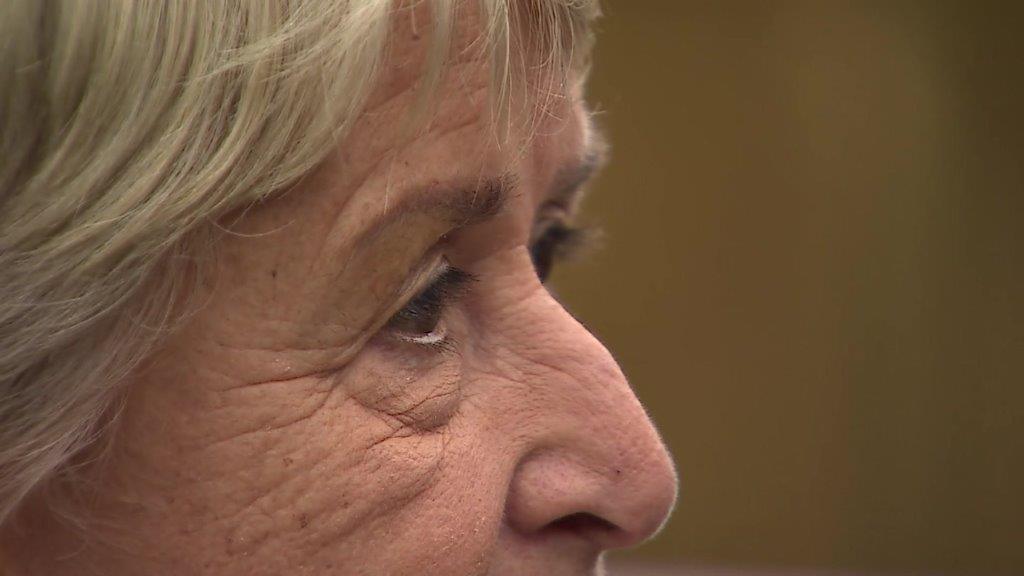Blind people in Wales frustrated by Covid vaccine access
- Published
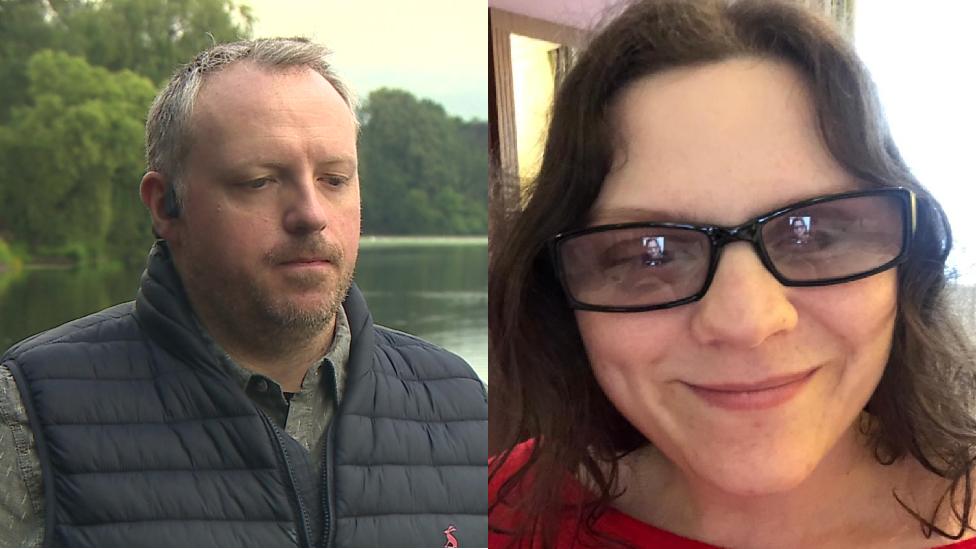
Nathan Foy and Megan Price say they both faced obstacles to getting their Covid jabs
A lack of communication and access to Covid vaccines in Wales is "frustrating", according to some blind and visually impaired people.
Some have said they have considered not getting a jab due to little digital information and distance from centres.
The Royal National Institute of Blind People (RNIB) Cymru said a "more consistent approach" is needed.
The Welsh government said they have worked with the RNIB to improve access to information.
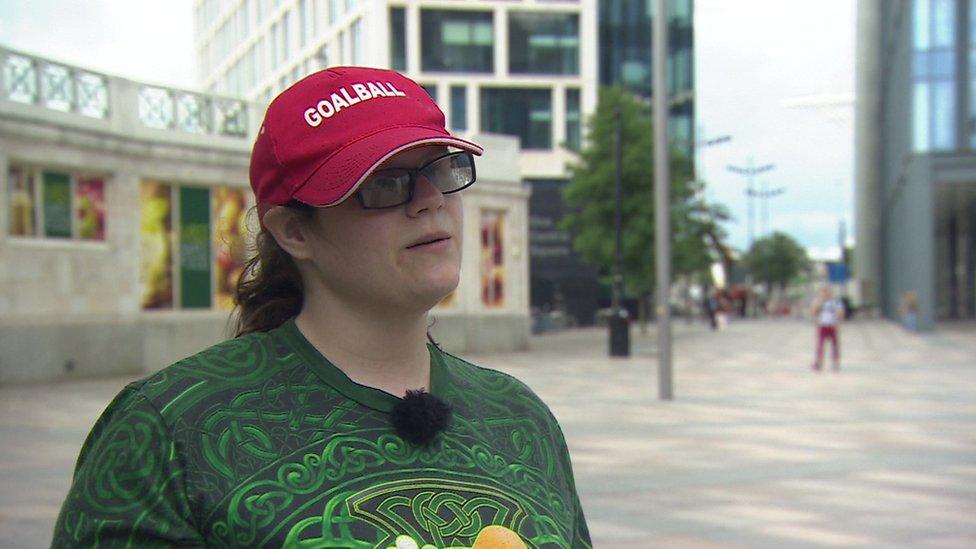
Accessible versions of vaccine information were not available when she asked, said Megan Price
Megan Price, 29, from Aberdare received her first dose of a vaccine in February in Cardiff, where she said she could tell "there was an issue with visual impairment awareness".
She was sat down waiting to be called into the centre as the first group of vaccine patients went inside, when she said someone had to shout to staff: "Don't forget the lady in the chair."
Ms Price was born with a condition called Aniridia, external, and uses a cane to help navigate. While people at the centre tried to help direct her, she said she "had no idea" where she was going, and the change in environment on top of a fear of needles "stressed her out".
Ms Price was then was handed one leaflet, which she was told was not available in any other formats, and another with a QR code, which she had to use an electronic magnifier to find.
"I got to the point where, if one more thing had gone wrong, I might have just left, and not had the vaccine," she added.
'I could bring in a scooter - but not my guide dog'
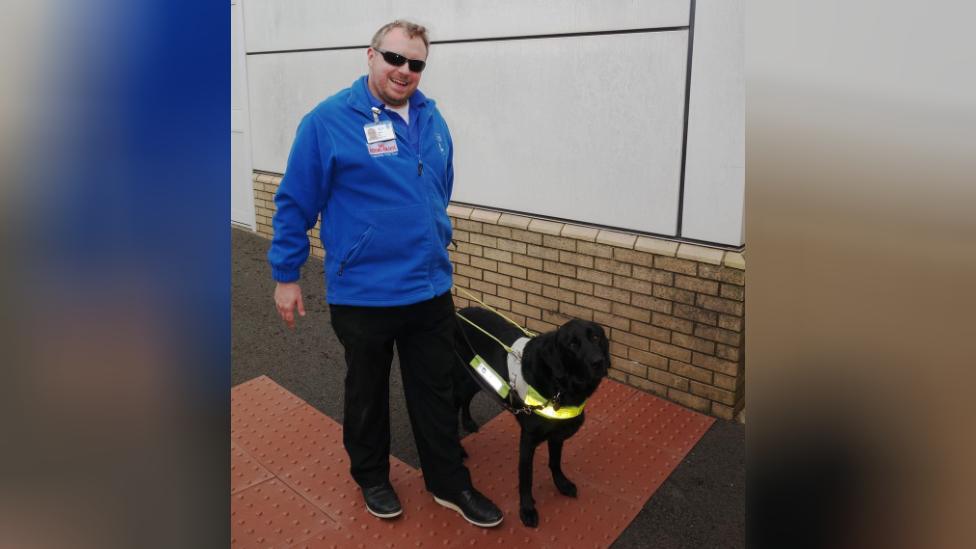
Nathan Foy was told by several people in a vaccination centre they did not want his guide dog Mason inside
Nathan Foy, 41, lives in St Mellons in Cardiff, and was born with a congenital version of glaucoma, external.
He was sent a letter to go to a centre on the other side of Cardiff, and had to use to an app to read it out to him, as there was not another version available.
He said: "I didn't know we could go somewhere else - I could have had it at my GP surgery, which would have been really helpful."
Reaching the vaccination centre by car would have been "easy", said Mr Foy, but he had to take the bus, which was "a real trek".
He said staff at the centre acted as though "they'd never seen a blind person before".
Mr Foy's second jab was also difficult.
He was told by by one person that they were not "too keen" on having the guide dog inside the centre.
"I went past him, and got to the front desk - but was told I couldn't come in with a dog. Two of the staff told me they couldn't have dogs in here.
"A third guy then came across and said I could bring a scooter in with me - but not my guide dog.
"I had to shout 'it's a guide dog' to get the point across."
Cardiff and Vale University Health Board apologised for the incident and said they "will continue to ensure members of our community who are blind or visually impaired are supported when attending our vaccination sites".
"This includes making sure all our staff are reminded that anyone attending with a guide dog or assistance animal should be allowed access," said an official.
'It's not a consistent approach'
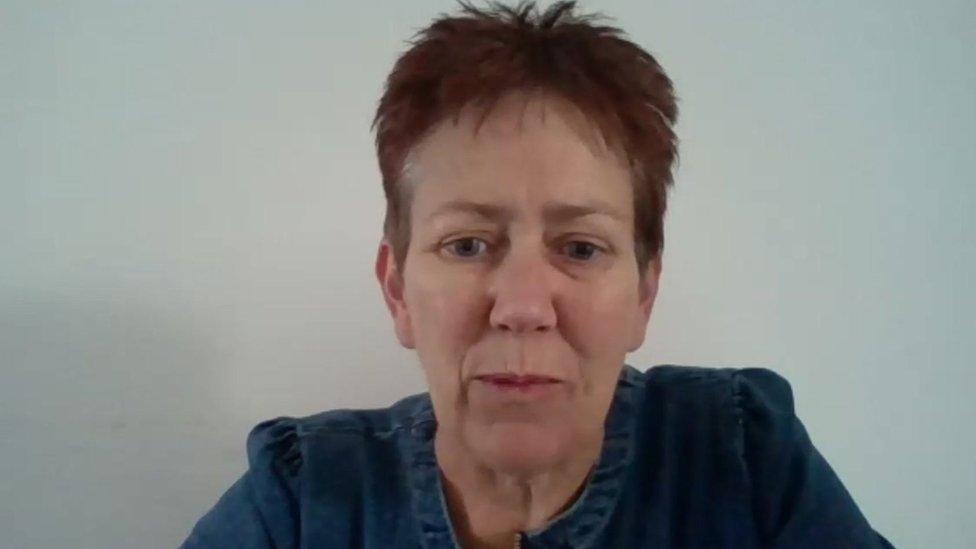
Chair of RNIB Cymru Ansley Workman said accessibility to information needs quicker
Ansley Workman, chairwoman of RNIB Cymru, said she this was not an uncommon experience for visually impaired people across Wales, and distance to centres could be a big issue, "particularly if the environment has changed during the pandemic".
She said: "We've heard how some people have had to go on 60 mile round-trips to actually get to venues.
"We are hearing overwhelmingly that the staff and volunteers at the venues are really good, but we have people then asking for information in an accessible formats - and there's nothing, even though that information should be provided."
The RNIB asked the Welsh government to make two considerations when rolling out the coronavirus vaccination programme in Wales:
All information about vaccinations, including appointment letters, were communicated in an accessible format for those who needed it, including using large print, audio, braille or digital formats.
Blind and partially sighted people were offered a choice of venue for their vaccination appointment.
Ms Workman said the situation was "really concerning" as "everyone has a right to have health information in accessible formats".
A Welsh government official said: "Health boards provide support to people with a visual impairment to ensure they can take up their offer of a vaccine.
"Anyone who has not had their vaccine and needs advice or assistance, should contact their local health board.
"We have worked with the RNIB on making the appointment letter more accessible. Large print materials are available at vaccination centres."
- Published1 January 2021
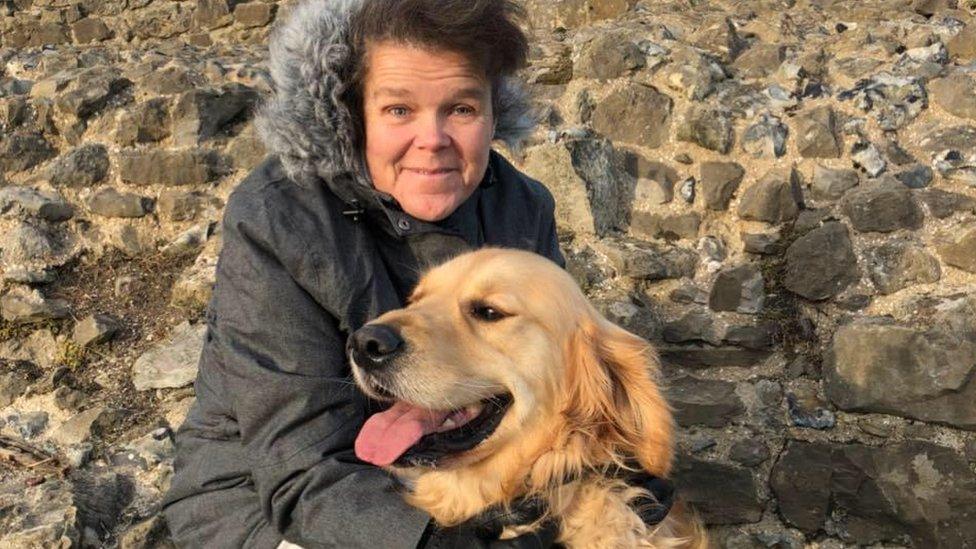
- Published4 April 2020
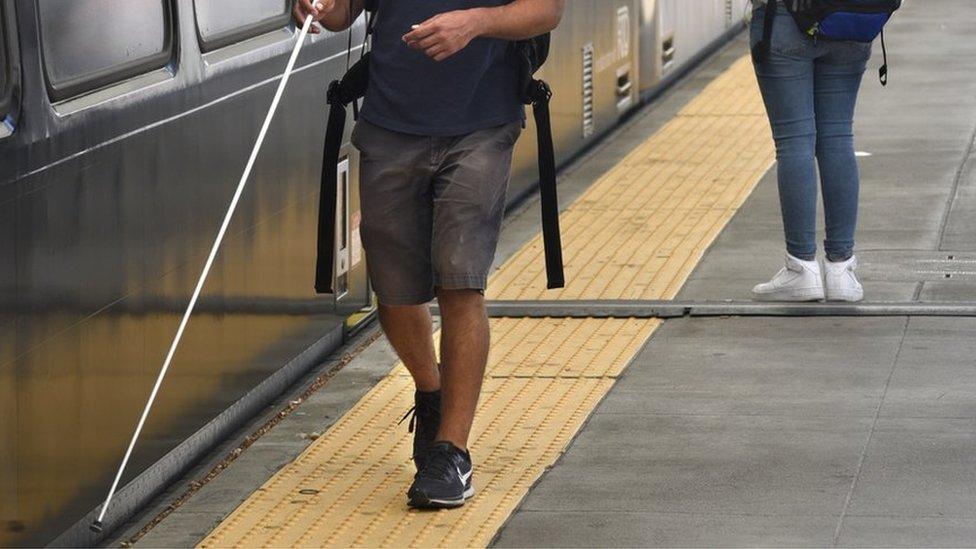
- Published27 November 2020
